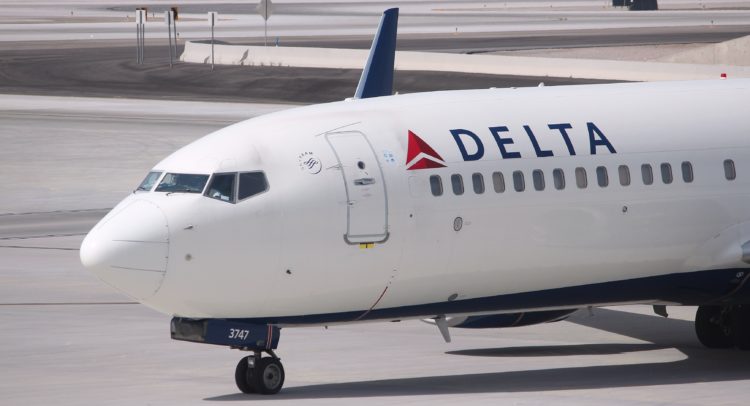Shares of Delta Air Lines fell 2.7% on Tuesday as the company reported worse-than-expected third-quarter results with the pandemic significantly impacting travel demand. The carrier kicked off the earnings season for the US airline sector by posting a loss of $5.4 billion in the third quarter.
The company recorded $2.2 billion of charges related to fleet retirement and $3.1 billion of charges associated with voluntary separation and early retirement programs that were accepted by 18,000 employees. Excluding the impact of one-time items, Delta (DAL) swung to an adjusted loss per share of $3.30 compared to an adjusted EPS of $2.33 in 3Q last year. Analysts were expecting adjusted loss per share of $3.
The company’s 3Q revenue fell about 76% Y/Y to $3.06 billion, lagging the Street’s estimate of $3.11 billion. Passenger revenue plunged 83% to $1.94 billion reflecting the impact of travel restrictions and lower demand due to rising COVID-19 cases. Meanwhile, Cargo revenue fell 25%.
“While our September quarter results demonstrate the magnitude of the pandemic on our business, we have been encouraged as more customers travel and we are seeing a path of progressive improvement in our revenues, financial results and daily cash burn,” stated Ed Bastian, Delta’s CEO.
The company’s cost reduction efforts helped in bringing down the daily average cash burn to $18 million in the month of September compared to $27 million in June. The daily cash burn averaged $24 million for the entire third quarter.
Adding to investors’ concerns, the airline cautioned that it might take two years or more to see a normalized revenue environment.
Delta ended 3Q with $21.6 billion in liquidity and total debt and finance lease obligations of $34.9 billion. Last month, the company completed the largest debt offering in aviation history by raising $9 billion backed by its SkyMiles loyalty program.
Following the results, Citigroup analyst Stephen Trent maintained his Buy rating for Delta saying that the carrier’s response to the pandemic and the impact of travel restrictions on air travel “looks about as good as any global network carrier could have managed under the circumstances.”
He added that Delta’s “medium-term outlook seems more relevant for the carrier’s investment case than the completion of the second toughest quarter in aviation history.” (See DAL stock analysis on TipRanks)
The Street has a cautiously optimistic Moderate Buy consensus for Delta that breaks down into 9 Buys, 4 Holds and no Sells. Delta stock has tanked 46% year-to-date but the average analyst price target of $39.67 indicates a possible upside of about 25%.

Related News:
Southwest Airlines To Expand Footprint In Chicago and Houston
Air Canada Chops Transit Takeover Price By 74% Due To Covid-19 Crisis
Airbus Jet Deliveries Show Monthly-High In Sept., No New Orders
















